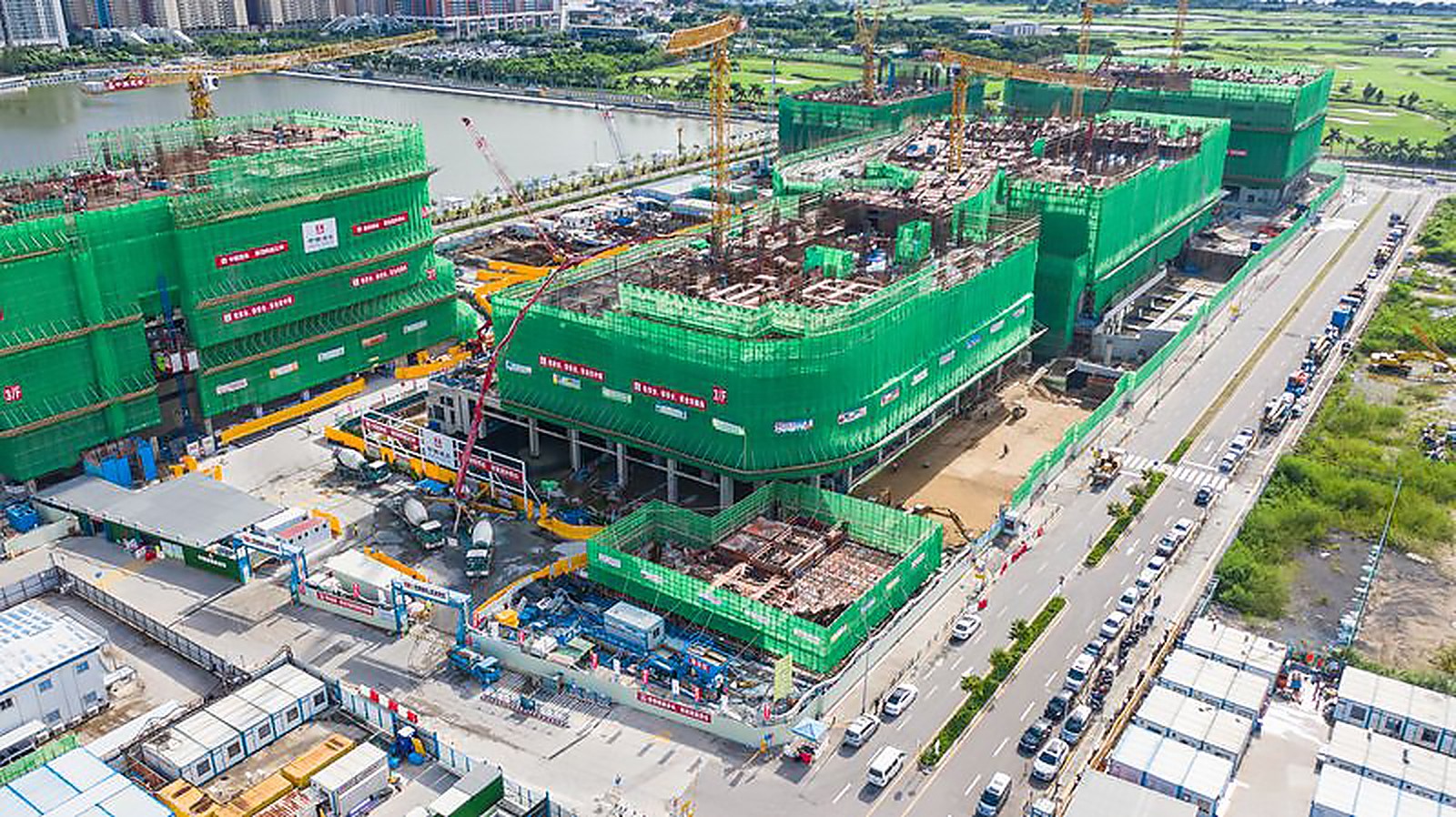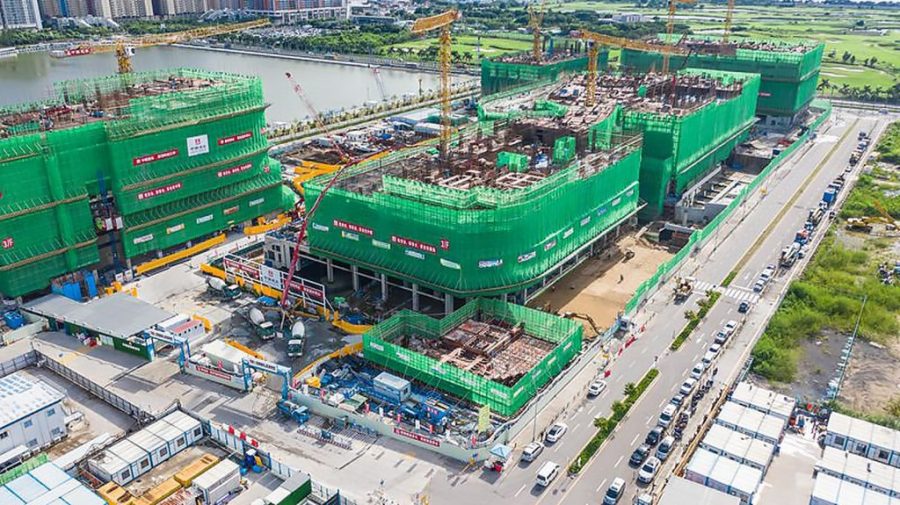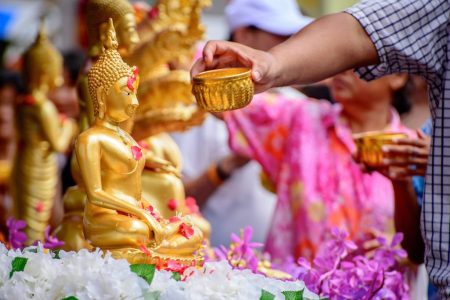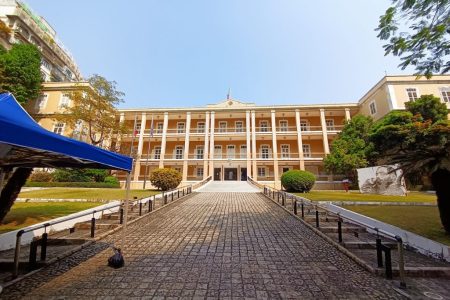The new public hospital complex in Cotai, which is due to come into service in 2023, will be operated by Peking Union Medical College Hospital, the government has announced.
The government decided to cooperate with the Beijing-based hospital in the operation and management of the Cotai hospital complex, officially known as Islands Healthcare Complex, after considering a suggestion by the National Health Commission (NHC).
The government reaffirmed that the Cotai hospital will always be a public hospital, which will be run by Peking Union Medical College Hospital (北京協和醫院), based on a non-profit and non-commercial cooperation model.
The government’s working group for the setting-up of the Cotai hospital complex is headed by Lei Chin Ion, the previous director of the Health Bureau (SSM) who is assisted by Wong Cheng Po and Chou Kuok Hei.
The SSM announced last month that it had commissioned the Faculty of Medicine of the University of Hong Kong (HKUMed) to carry out a research study on the most suitable model for the operation of the Cotai hospital complex.
The HKUMed research team suggested that the Cotai hospital complex should be run by a private institution, either a commercial organisation or a non-commercial but “excellent” medical institution, for a period of time.
Lei noted that the findings of the HKUMed research team suggest that the Macao government cooperate with a third-party institution in the operation of the Cotai hospital. Lei said that the Macao government concluded that commissioning a third-party institution to run the Cotai hospital would enable the it to achieve a number of objectives for the city’s health sector development, such as introducing a good-quality medical institution with the aim of meeting residents’ diverse health needs and choices, and making good use of the brand effect of the selected third-party medical institution with the aim of turning Macao’s specialty medical services into an attractive option for residents.
This, Lei said, could reduce the number of patients the SSM has to transfer to hospitals elsewhere for treatment.
Lei said that the Macao government decided to cooperate with a non-commercial but “excellent” medical institution for the operation and management of the Cotai hospital, with the aim of implementing the government’s policy on health sector development and promoting the sustainable development of the city’s health system.
Consequently, Lei said, the Macao government had asked the NHC to recommend a hospital which could ensure a high level of medical treatment and is renowned in the mainland and overseas, to operate the Cotai hospital and help promote Macao’s health sector development.
Lei underlined that despite being operated by a third-party institution, the Cotai hospital complex will “by nature” still be a public hospital, where internationally-advanced medical equipment will be installed.
In addition to public medical services, the Cotai hospital will also offer private medical services, which will charge fees in line with the private sector.
The Cotai hospital’s private medical services could offer residents more diverse options for receiving medical treatment. According to Lei, the income obtained from the Cotai hospital’s private medical services will be used to finance some of the expenditures used for the hospital’s public medical services and to support the development of the city’s health sector.
Due to the non-commercial cooperation, according to Lei, the Macao government will not need to pay Peking Union Medical College Hospital any service fees, but will only have to pay its staff salaries. Lei said that the cooperation arrangement is the central government’s measure to support the development of Macao’s health sector.
According to Lei, most of the Cotai hospital’s medical, administrative and support staff will be local residents, while only senior doctors, consultant and teaching doctors, and those in the top management team will come from Peking Union Medical College Hospital. Lei reassured the public that the government’s cooperation with the Beijing-based hospital would not affect job opportunities for local health professionals.
According to Wong, the government would need to draft legislation to enable a third-party institution to operate the Cotai hospital. In addition, according to Wong, the government would need to establish a new institution to supervise the operation and management of the Cotai hospital to be carried out by the third-party institution.
Wong also said that local health professionals qualified to work at the Cotai hospital will be able to apply to undergo training at Peking Union Medical College Hospital in Beijing for one to two years.
Wong also said that Peking Union Medical College Hospital’s operation of the Cotai hospital would help Macao develop “health service plus tourism”.
Lei said that the Macao government had considered certain other medical institutions elsewhere as its possible cooperation partner for the Cotai hospital’s operation. But after considering the current policy in health sector development, the city’s need to integrate into the development of the Greater Bay Area and local residents’ recognition, the government concluded that Peking Union Medical College Hospital is the most suitable option.
Peking Union Medical College Hospital was founded in 1921 by the Rockefeller Foundation and is affiliated to both Peking Union Medical College and the Chinese Academy of Medical Sciences, The Macau Post Daily reported.




